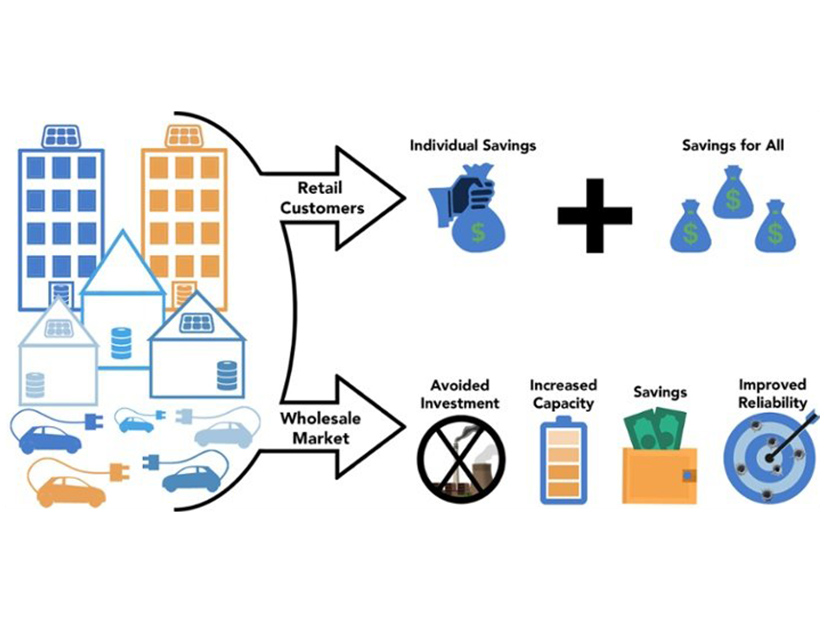FERC on Friday approved requests by MISO, SPP and PJM to delay their Order 2222 compliance filings by up to nine months.
The September 2020 order required RTO markets to permit participation by distributed energy resource aggregators, with compliance filings due July 19.
In granting the RTOs’ requests for delays until next year (Feb. 1 for PJM, April 18 for MISO and April 28 for SPP), the commission noted that no intervenors had opposed the requests (RM18-9).
But the commission agreed with intervenors’ requests that the RTOs file stakeholder process schedules and status reports during the additional time. Schedules will be due in 30 days, with status reports every 90 days afterward until the compliance filing. The commission rejected requests to require implementation schedules.
MISO said the delay will improve coordination with its reliability imperative initiative and allow it to integrate the energy, capacity and ancillary services market revisions mandated by Order 2222 into its Market System Enhancement project. (See MISO to Seek Extension on Order 2222 Plan.)
SPP cited the coronavirus pandemic as a reason for additional time and said it could not implement the order before the first quarter of 2024. PJM said it will be unable to begin software development on the initiative until fiscal year 2022.
ISO-NE told RTO Insider it will also file a request for a delay. NYISO and CAISO told RTO Insider they do not plan to seek an extension.
“FERC Order 2222 has identified the ISO’s distributed energy resource provider approach as a model for aggregation and was largely based on the DER aggregation model the ISO implemented in 2016,” CAISO spokesperson Vonette Fontaine said. “We don’t believe there are significant changes needed for compliance; therefore it is not necessary to extend our compliance filing from this summer.”
Order 2222 requires RTOs to allow DER aggregators to register as market participants under models that accommodate their physical and operational characteristics. FERC defines DERs as any resource located on the distribution system, a distribution subsystem or behind a customer meter, including energy and thermal storage, intermittent and distributed generation, energy efficiency, and electric vehicles. (See FERC Opens RTO Markets to DER Aggregation.)
Jason York contributed to this article.





